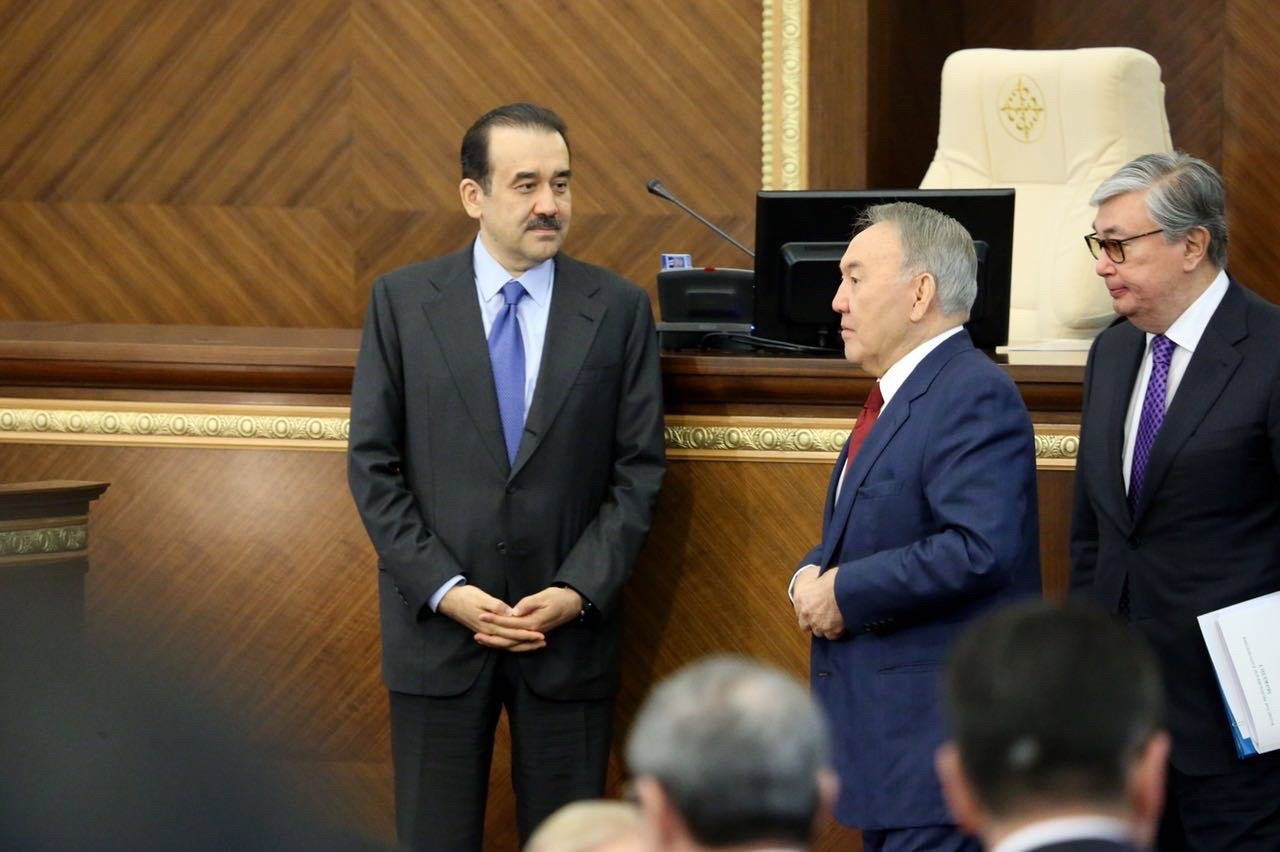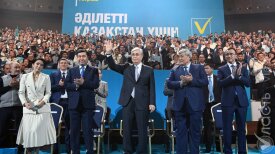South Korean President Yoon Suk Yeol visited Kazakhstan on June 12 and struck several deals with President Kassym-Jomart Tokayev. The two sides agreed to cooperate in the exploration of critical minerals. Tokayev also said he would support the proposal from BNK Finance, a Korean microfinance organization that operates in Kazakhstan since 2018, to transform it into a bank.
Karim Massimov, the former chief of the national security committee (KNB), appealed to Tokayev for pardon in March, the KNB said on June 10. The Presidential Administration confirmed on June 14 it had received the plea. Massimov was sentenced to 18 years in prison for high treason in April last year.
A court sentenced 11 people to prison terms between one and nine years on June 11 for having attacked the presidential residence and other government buildings in Almaty in January 2022. During the unrest of January 2022, later quashed by the army and security services, which became known as Qandy Qantar (Kazakh for ‘Bloody January’), a number of people tried to seize the presidential residence and set it on fire. Most defendants had claimed to have suffered torture and violence while in detention. Their lawyers argued that they did not know each other, so they could not have planned the attack in advance.
A new wave of US sanctions ordered on June 12 by the Treasury Department also hit a Kazakhstan-based company. In February, KBR Tekhnologii had been singled out – in an investigation that Vlast took part in – as an enabler of “false transit” schemes aimed to trade high-tech equipment for semiconductor production to Russia, avoiding the sanctions regime imposed by western countries. Deputy Prime Minister Serik Zhumangarin told Vlast on June 13 that “this company did not apply for an export-import license.”
Due to US sanctions, the Moscow Stock Exchange (MOEX) stopped all operations in US dollars and euros on June 13. MOEX owns a 13.1% stake in the Kazakhstan Stock Exchange (KASE). Timur Suleimenov, the head of the Central Bank, said that KASE will continue to operate through the MOEX system and that he is convinced that “this will to some extent provide an additional influx” of companies into Kazakhstan. Suleimenov also said that KASE could also consider buying out MOEX’s stake.
In an odd, but telling public comment, Senate Speaker Maulen Ashimbayev said on June 13 that the country’s National Fund is smaller than it should be. “The National Fund holds assets for just $60 billion, but there could have been $100 billion or $150 billion had we not continued to withdraw money from it,” Ashimbayev said. The Speaker’s argument coincides with Tokayev’s ambition to double the assets of the National Fund by 2030, bringing them to $100 billion. Yet, the National Fund has continued financing the budget in opaque ways.
The head of the Supreme Audit Chamber, Alikhan Smailov, said on June 12 that the national railway company Kazakhstan Temir Zholy (KTZh) is on the brink of survival. Smailov, who is also a former Prime Minister, said that the problems at KTZh arose because of “ineffective and conservative management, as well as ill-considered privatization”. In an interview with Vlast, the head of Samruk-Kazyna, which controls KTZh, also highlighted the need for structural changes at the railway company.
Bagdat Mussin, the former minister of digitalization, became the new head of state-controlled Kazakhtelecom on June 10. He replaced Kuanyshbek Yesekeyev, who had held the top job at Kazakhtelecom since 2010. Yesekeyev was appointed advisor to the president on the same day.
US giant food and beverage manufacturer PepsiCo will build a new factory in the Almaty region, the office of the Prime Minister announced on June 14. PepsiCo will invest $160 million in the project, which will improve the company’s penetration in the Central Asian market.
On June 12, Kazakhstan’s government allocated 9 billion tenge (around $20 million) for the renovation of the heating networks in the northern Pavlodar region. This includes the networks in the cities of Pavlodar, Ekibastuz (where a massive accident left the city in the cold one-and-a-half years ago), and Aksu. The issue of aging heating and electricity infrastructure has climbed to the top of the agenda, with the government spending massive amounts, although the results have been disappointing.
Kazatomprom, the country’s uranium producer and monopolist, said on June 12 that it received a license to mine yet another section of land in the Turkestan region. Work at Inkai Section 3 should start as soon as the subsidiary company Kazatomprom SaUran received additional permits.
Armenian Prime Minister Nikol Pashinyan said on June 13 that his country will leave the Collective Security Treaty Organization, which unites Russia, Belarus, Kazakhstan, Kyrgyzstan, and Tajikistan. Pashinyan said that members of the CSTO sided against Armenia during the 2023 war with Azerbaijan. We wrote at the time that Armenia had started considering leaving the CSTO.
Поддержите журналистику, которой доверяют.








